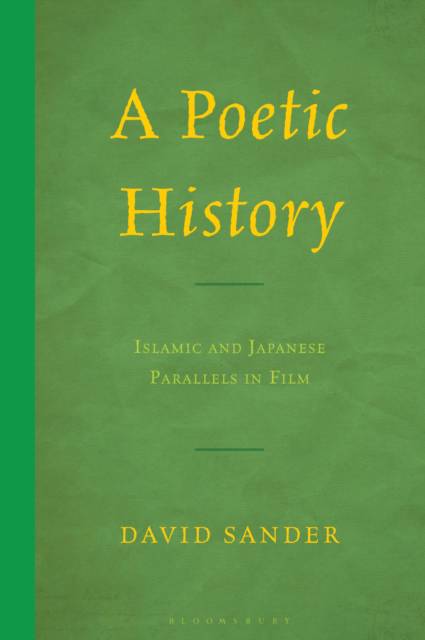
- Afhalen na 1 uur in een winkel met voorraad
- Gratis thuislevering in België vanaf € 30
- Ruim aanbod met 7 miljoen producten
- Afhalen na 1 uur in een winkel met voorraad
- Gratis thuislevering in België vanaf € 30
- Ruim aanbod met 7 miljoen producten
Omschrijving
David Sander invites readers on a cinematic journey through Islamic and Japanese cultural and religious worlds. This unusual juxtaposition crosses boundaries established by a strictly linear view of history, revealing astonishing connections beneath the surface.
Sander shows how certain films continue older poetic and mythic traditions, evoking archetypal moments of spiritual crisis that are both unique and universal. This filmic journey allows a meeting with countless lives, souls and stories that remain latent and uncelebrated in contemporary societies. As Sander traverses deep parallels and channels between these worlds, a landscape of poetic history is revealed. Poetic history, he contends, is an age-old mode of cognition, a nuanced alternative logic for understanding and metabolizing the past through juxtaposed images, rather than through linear cause-and-effect narratives. It preserves access to otherwise intangible relationships between the psyche and the whole.
As the book unfolds, we can see film after film, with their subliminal spiritual and poetic roots, weaving together a subtle tapestry. An archetypal, border-crossing image of the human "wanderer" appears, an image that helps chart dangers of the collective journey. The cinematic wanderer, like the rest of us, faces profound trauma and the possibilities of ecological destruction and apocalyptic warfare, that may both hide and reveal the wellsprings of love, healing and renewal.
Specificaties
Betrokkenen
- Auteur(s):
- Uitgeverij:
Inhoud
- Aantal bladzijden:
- 336
- Taal:
- Engels
Eigenschappen
- Productcode (EAN):
- 9781666931341
- Verschijningsdatum:
- 8/01/2026
- Uitvoering:
- Hardcover
- Formaat:
- Genaaid
- Afmetingen:
- 152 mm x 229 mm
- Gewicht:
- 453 g

Alleen bij Standaard Boekhandel
Beoordelingen
We publiceren alleen reviews die voldoen aan de voorwaarden voor reviews. Bekijk onze voorwaarden voor reviews.








